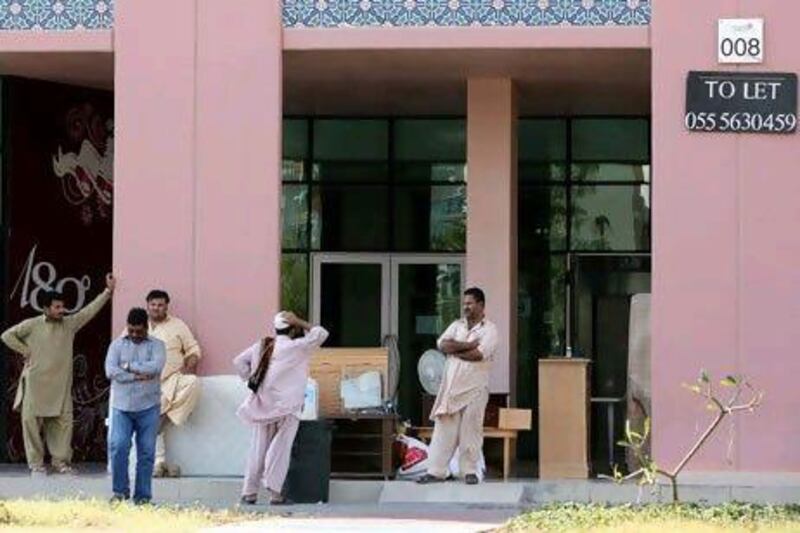New data shows residential prices in Dubai stabilising in some neighbourhoods, while other areas continue to decline.
Overall prices for apartments have declined 7 per cent since the start of the year, according to research by Jones Lang LaSalle. And villa values declined by 6 per cent in the first quarter compared with the previous quarter, the property consultancy said.
"Although there are pockets of stabilisation within Dubai's high-end residential sector, the overall residential market will continue to experience a situation of oversupply and prices are expected to decline further over the remainder of 2011," Jones Lang LaSalle said.
But there are some positive signs in the market, with data released yesterday from the property agency Cluttons showing prices in some neighbourhoods flattening out.
"I think there is light at the end of the tunnel, but it is still a long way off and still project specific," said Steve Morgan, the head of Cluttons' UAE office.
High-end villas are performing better than the overall market, according to Cluttons' latest data. Prices for villas in developments such as Arabian Ranches, Meadows and Palm Jumeirah have posted "little to no movement over the last three months, which bodes well for the recovery", Cluttons reported.
Other villa developments such as Victory Heights and MotorCity reported drops of 3.6 per cent from the end of last year, according to Cluttons.
"In broad-based terms the falls we've seen in the previous quarters are levelling off," said Mr Morgan.
But there's a different story in apartments, where an oversupply continues to drive down prices.
In less expensive apartment developments such as Discovery Gardens and International City, prices declined 8.9 per cent in the first quarter of the year compared with the previous period, according to Cluttons. But prices in higher-end apartment towers in Dubai Marina, The Old Town and Palm Jumeirah fell only 3.7 per cent in the quarter, according to Cluttons.
The oversupply situation in apartments is likely to continue for at least a year, analysts say.
More than 25,000 units are expected to come online this year, Jones Lang LaSalle forecast. About 7,900 units were completed in the first quarter of this year, it said.
By the end of the year, apartments are likely to represent 79 per cent of the residential stock in Dubai, Jones Lang LaSalle said.
Part of the movement in the market is a "flight to quality", as buyers take advantage of low prices to upgrade from lower-end neighbourhoods.
Analysts forecast more decreases in the summer, a historically slow time for sales in the region. But the long-term outlook is improving, analysts say.
The number of transactions increased by 20 per cent last year compared with 2009, while the value of sales increased by 30 per cent, according to property data tracked by Reidin. Dubai is benefiting from new competition among mortgage lenders, which is helping to spur sales.
"As well as offering mortgage rates for as low as 4.99 per cent, banks are slashing arrangements fees and [reducing the time taken] to process approvals in an attempt to attract the limited market available," Cluttons said.
Cluttons is also seeing increased interest from GCC nationals looking to move money out of countries experiencing political turmoil, Mr Morgan said. Inquiries have "risen significantly in the last few weeks", Mr Morgan said.
Although that has not yet resulted in sales, regional buyers are looking at both commercial and residential property. They see Dubai as a "safe haven", he said.
Mr Morgan said values in many neighbourhoods would continue to decline this year, but not at the rate of past years, when values dropped by 20 to 30 per cent a year.
"To me it shows the market is stabilising," Mr Morgan said.






